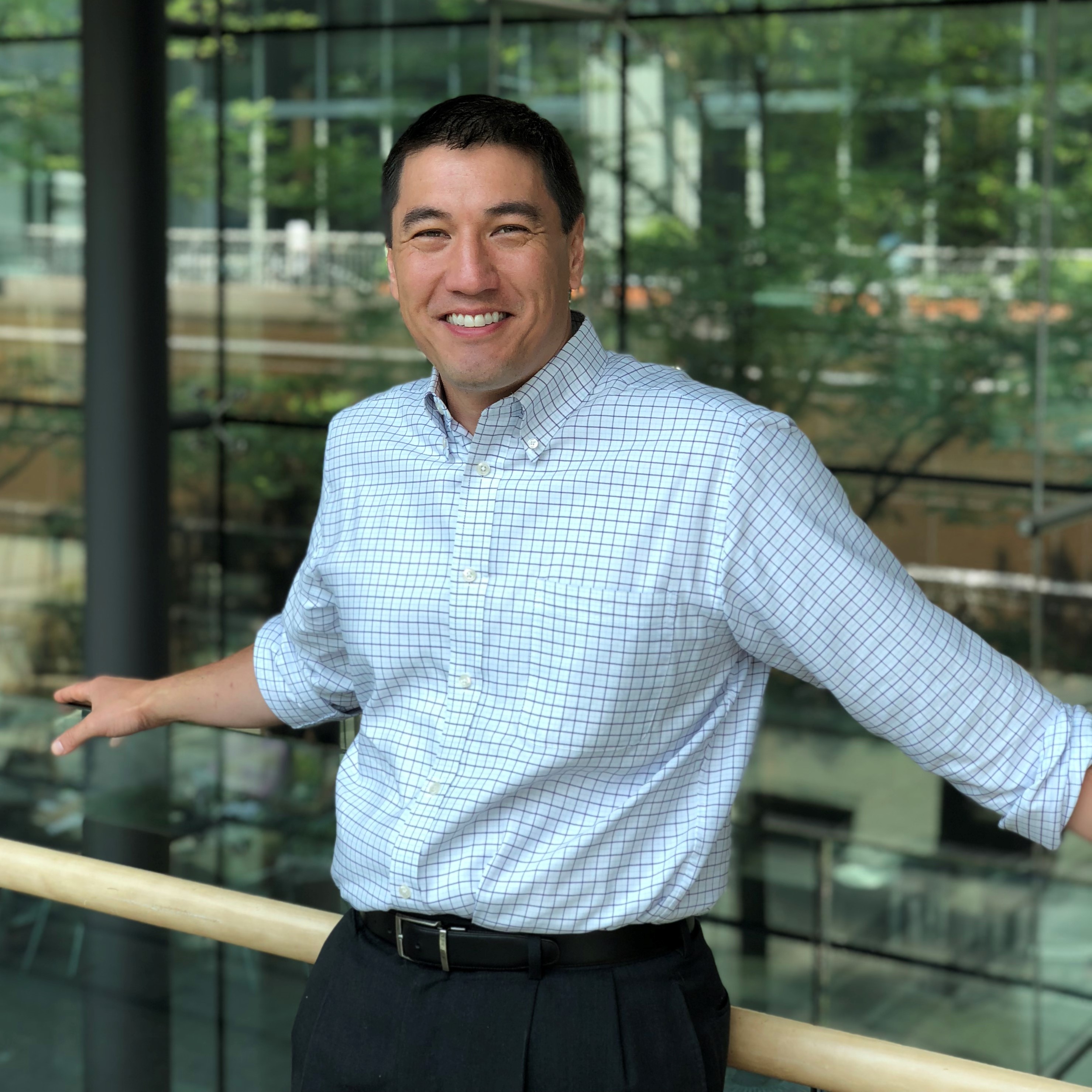Investigator Spotlight: Getting to Know Kurt Christensen
Kurt Christensen, Beyond the CV
 Welcome to our spotlight series, where we look beyond the CV and learn more about our investigators. Meet Kurt Christensen, who joined our department as a faculty member in late 2019. Dr. Christensen’s research focuses on the medical, behavioral, and economic impact of integrating genomic tools into clinical and research settings. Let’s dive in!
Welcome to our spotlight series, where we look beyond the CV and learn more about our investigators. Meet Kurt Christensen, who joined our department as a faculty member in late 2019. Dr. Christensen’s research focuses on the medical, behavioral, and economic impact of integrating genomic tools into clinical and research settings. Let’s dive in!
Q: Tell us: where are you from?
A: I currently live in Westborough, Massachusetts, but grew up in a small town in Minnesota called Mound. Most of my personality traits are stereotypically Minnesotan. I've been frequently told that I'm too nice, I shy away from asking for help, and I enjoy cold-weather sports. I am also hopelessly pessimistic about my favorite sports teams, and I tend to sit on my hands nervously when they're winning rather than cheering. You know I'm nearby if you hear someone say, "oof da!"

Q: Tell us about your work before the Institute.
A: I received my undergraduate degree in Biochemical Sciences from Harvard College. After spending six years in business, I pursued an MPH and a PhD in Health Behavior and Health Education at the University of Michigan. I come to the Institute by way of the Brigham and Women’s Hospital, where I was a postdoc and then an instructor in medicine. I was fortunate to develop strong relationships with Institute investigators while I was there.
Q: Explain what you do.
A: I research the economic, medical, and behavioral impact of genomic testing, with an emphasis on healthy populations. I use many methods to explore this issue, including clinical trials, simulation modeling, and retrospective analyses of medical records. The goal of my work is to accelerate the adoption of genomics into patient care in ways that improve medical decision making and public health.
Q: Can you describe one of your current projects to us?
A: I am a co-investigator on the PreEMPT Model, an NIH-funded study that examines clinical outcomes and the cost-effectiveness of newborn genetic screening. We are using simulation modeling to synthesize the best available clinical, epidemiological and economic data and project the short- and long-term outcomes associated with current screening strategies and to assess the potential value of screening individuals at birth for genetic risk factors. In this study, I am leading development of a module about hypertrophic cardiomyopathy (HCM), one of the leading causes of sudden cardiac death during childhood. There are hopes that newborn genetic screening for genetic risk factors for HCM will save lives, countered by fears that population screening may result in overtreatment that harms children more than it helps them. My work will provide critical insight about this topic.
Q: Your published work has provided some of the earliest insight about the implications of population genomic screening for health systems, providers, and patients, as well as the best methods for examining these issues. How have you navigated being at the forefront of a newly emerging field, and what direction do you see your future research taking?
A: I have long been lucky and worked with forward-thinking people on high-impact projects, even before my doctoral studies. I worked as an intern at the Genetic Alliance in 2005 under the leadership of Sharon Terry, and she exposed me to the tremendous impact of genomics on patients and families, and also taught me to think big and to "see the forest through the trees." Soon afterwards, I started working on the Risk Evaluation and Education for Alzheimer's Disease (REVEAL) Study, a series of high-impact multi-site trials that challenged conventional thinking that providing genetic testing for chronic disease risk to healthy individuals is too complicated and dangerous. I developed skills that positioned me perfectly to contribute to other high-impact studies of genetic and genomic screening, but more importantly, I began to participate in discussions about how genomics might be able to play a greater role in patient care. These discussions have helped me to understand where the most critical knowledge and skills gaps exist, and I am determined to help filling those gaps. In the coming years, I will be focusing more and more on the economics of providing genomic screening to healthy individuals, as well as developing strategies for documenting how genomic screening impacts patient and familial outcomes throughout their lives.
Q: What excites you most about being at the Institute?
A: The Institute’s emphasis on advancing medicine at a population level is a perfect fit for my public health perspective! Convincing policymakers and payers that genomic screening is beneficial and cost-effective will require big-data analytics and creativity that are the trademarks of Institute faculty. I'm excited to learn from my colleagues and to make an impact.
Q: What book/tv show/or podcast do you love right now, and why?
A: I am halfway through the Dark Tower series, by Stephen King. It’s part sci-fi, part western, part horror, and all interesting!
INVESTIGATORS
Kurt ChristensenCATEGORIES
Beyond the CV